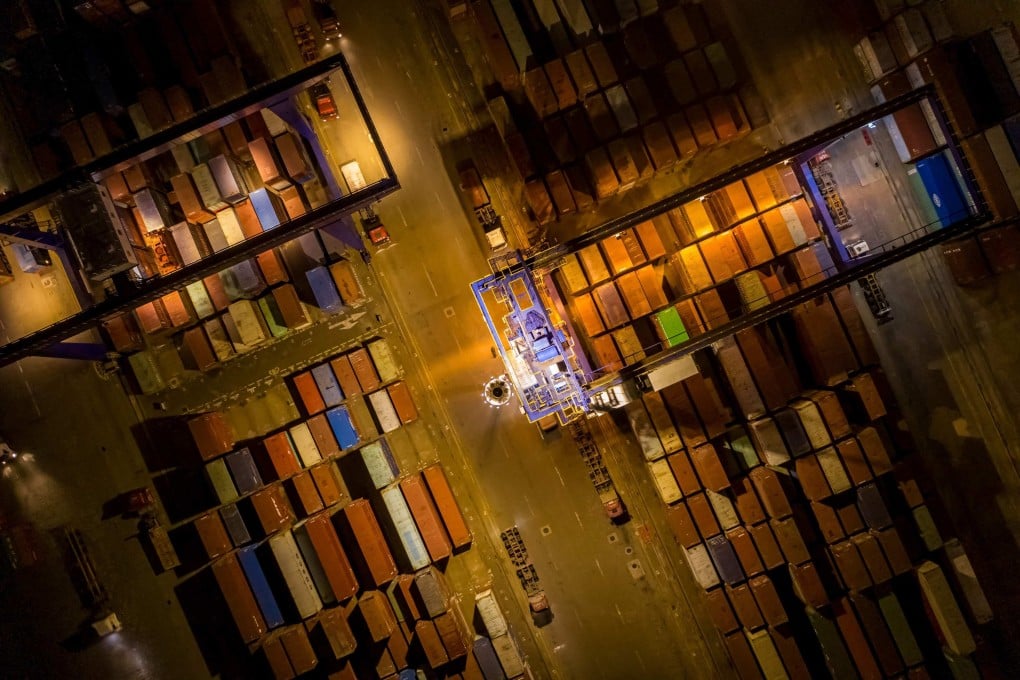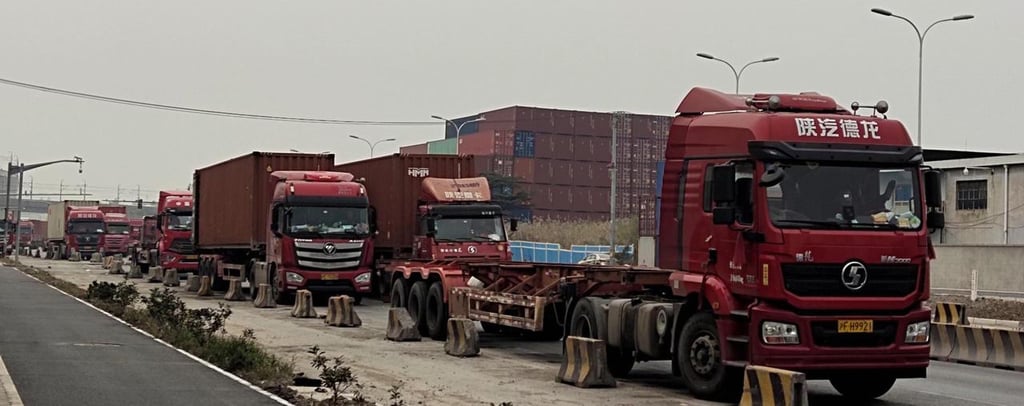China’s shipping containers pile up at overcrowded port as overseas orders dwindle
- A kilometre-long queue of trucks outside a major container terminal in Guangdong province reflects how exports are doing little to help China’s economic recovery
- Container leasing and purchasing prices in major Asian ports have fallen sharply, and a rebound is not expected for at least a few months

Although the Lunar New Year holiday ended weeks ago, not all truck drivers in Shenzhen are back to work. On the expressway heading towards Yantian International Container Terminal, several trucks with no containers on their long trailers can be seen parked on the roadside, part of a static convoy that stretches nearly a kilometre (0.62 miles).
“These are only a small portion [of all the empty trucks]. The rest had to be parked in Dongguan,” said a driver surnamed Huang, referring to another city in Guangdong that is an hour drive away from Yantian – one of the biggest Chinese container ports for foreign trade.
Huang is one of the lucky drivers. He had just unloaded a container at the terminal on a Friday afternoon. He said the port has more than 15,000 registered truck drivers, but only around 2,000 of them now have work.

With China still trying to rev up its economic engine after three arduous years under the zero-Covid policy, the export sector – which was the main economic driver during the pandemic – is looking like it will continue to sputter amid dwindling external demand and rising geopolitical tensions, according to analysts and industry insiders.